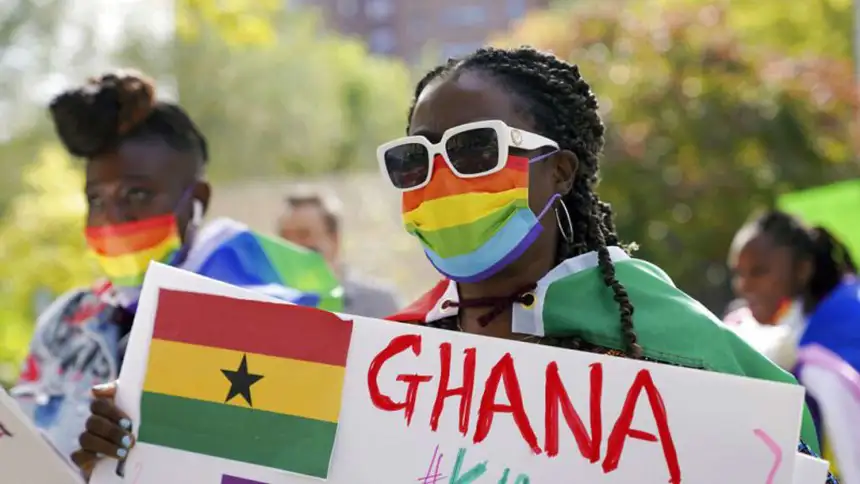Ghana‘s Supreme Court on Wednesday deferred a decision on a request to prevent parliament from sending a contentious anti-LGBTQ measure to President Nana Akufo-Addo for final approval.
The verdict means that debate over the measure, which has dominated Ghana’s political discourse since parliament passed it in February, will be excluded from the campaign for the December presidential election.
Chief Justice Gertrude Torkornoo, who chairs the five-member Supreme Court bench, stated that the case will be expedited. However, the matter has been deferred indefinitely, with no date set for future rulings.

Ghana’s Attorney-General, Godfred Dame, praised the court’s ruling, telling reporters, “I think the court is fair in coming by that approach.”
Two lawsuits are challenging the passing of the so-called “Human Sexual Rights and Family Values Bill,” which has received broad international condemnation for restricting human rights.
Broadcaster Richard Dela Sky is appealing the bill’s constitutionality, claiming it violates key clauses of the 1992 Constitution.
Amanda Odoi, the other plaintiff, is seeking a restraining order to prevent the parliament speaker, attorney-general, and clerk of parliament from submitting the measure to President Akufo-Addo for approval.
The bill, which imposes jail penalties ranging from six months to three years for engaging in LGBTQ intercourse and three to five years for advocating or financing LGBTQ activities, has been condemned by rights campaigners but has received widespread support in the conservative West African state.
Ghana’s finance ministry has warned that the country, which is recovering from its worst economic crisis in decades and is receiving a $3 billion loan from the International Monetary Fund, risks losing about $3.8 billion in World Bank financing as a result of the bill.
Akufo-Addo, who is stepping down after two terms, has refused to sign the bill, citing numerous legal challenges against it.
In the 2019 presidential election, his ruling New Patriotic Party (NPP) will compete closely with the main opposition National Democratic Congress (NDC).
The measure, often known as the anti-gay bill, has drawn considerable international condemnation, including from the United Nations, the United States, and the British government.
Despite this, it has strong support from MPs and is sponsored by a combination of Christian, Muslim, and Ghanaian traditional leaders.


